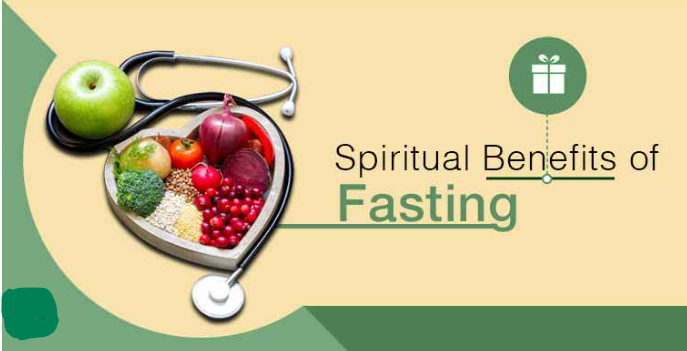
If you are looking for the Rules of Fasting(Sawm) During Ramadan with the references from Quran and Sunnah, this full guidance of article is for you. So, start reading this excellent article containing the full instructions and Benefits of fasting(Sawm).
Ramadan, the ninth month of the Islamic calendar, holds immense significance for Muslims worldwide. It is a month marked by fasting (Sawm), a practice deeply rooted in the teachings of the Quran and the Sunnah (traditions of Prophet Muhammad). In this article, we delve into the rules governing fasting during Ramadan, drawing insights from both sacred sources. Ramadan is not merely a month of abstaining from food and drink; it is a period of spiritual reflection, increased devotion, and heightened compassion. Fasting from dawn to sunset is a fundamental pillar of Islam, and it is during this month that Muslims commemorate the revelation of the Quran to Prophet Muhammad.
Rules of Fasting During Ramadan According to Quran and Sunnah

The Quran explicitly outlines the rules of fasting in Surah Al-Baqarah, Verse 183, stating, “O you who have believed, decreed upon you is fasting as it was decreed upon those before you that you may become righteous.” This verse establishes the purpose of fasting—to attain righteousness and God-consciousness.
Common Misconception about Fasting(Sawm)
Following the Sunnah in Ramadan
Prophet Muhammad’s Hadiths further elucidate the importance of fasting. His exemplary conduct during Ramadan serves as a guide for Muslims. His words, “When the month of Ramadan starts, the gates of heaven are opened, and the gates of Hell are closed, and the devils are chained,” emphasize the spiritual significance of this sacred month.
Timing and Duration of Fasting
Observing the correct timing for Suhoor (pre-dawn meal) and Iftar (meal at sunset) is crucial. Muslims fast from the break of dawn until the sun sets, refraining from both food and drink during this period.
Exceptions to Fasting
While fasting is obligatory for most adults, there are exceptions. Those who are ill, pregnant, nursing, traveling, or menstruating are exempt. Allah, in His wisdom, has provided flexibility to accommodate individual circumstances.
Spiritual Benefits of Sawm-Rules of Fasting (Sawm) During Ramadan According to Quran and Sunnah

Fasting extends beyond abstaining from physical needs; it is a holistic experience that nurtures self-discipline, empathy for the less fortunate, and a strengthened connection with the divine.
Physical and Health Considerations
Balancing the physical aspects of fasting is essential. Proper nutrition and hydration during non-fasting hours are key to maintaining health throughout Ramadan.
Social Aspects of Fasting
Ramadan emphasizes communal unity. Acts of charity, kindness, and increased attendance at mosques foster a sense of community and shared responsibility.
Preparing for Laylat al-Qadr
Laylat al-Qadr, the Night of Power, is a momentous occasion during the last ten days of Ramadan. Muslims engage in heightened worship and seek the blessings of this auspicious night.
Celebrating Eid al-Fitr
Eid al-Fitr marks the end of Ramadan, celebrated with joyous gatherings, feasts, and expressions of gratitude. Breaking the fast on this day is a moment of communal celebration.
Maintaining Consistency Beyond Ramadan
The lessons learned during Ramadan should extend beyond the month. Consistency in practicing self-discipline, compassion, and devotion is encouraged throughout the year.
Fasting in Different Cultures
While the rules of fasting remain consistent, diverse cultures add unique traditions and practices to the observance of Ramadan, showcasing unity in diversity.
Common Challenges Faced During Ramadan
Overcoming challenges such as hunger and fatigue while balancing work, family, and religious duties requires dedication and a mindful approach.
Benefits of Fasting (Sawm) According to Quran and Sunnah

Fasting during the month of Ramadan is not merely a physical abstention from food and drink; it carries profound spiritual, psychological, and social benefits as outlined in the Quran and the Sunnah (traditions) of Prophet Muhammad.
1. Spiritual Purification
Quranic Basis:
The Quran emphasizes the spiritual benefits of fasting, stating, “O you who have believed, decreed upon you is fasting as it was decreed upon those before you, that you may become righteous.” (Surah Al-Baqarah, 2:183) Fasting is a means of attaining Taqwa (God-consciousness) and righteousness.
Sunnah:
Prophet Muhammad further stressed the spiritual purification of fasting, saying, “When one of you is fasting, he should avoid indecent acts and speech. If someone curses or fights him, he should say, ‘I am fasting, I am fasting.'” (Sahih al-Bukhari)
2. Self-Discipline and Control
Quranic Basis:
While not explicitly stated, the act of abstaining from food, drink, and other desires during fasting cultivates self-discipline and control over one’s desires. This discipline is a means of achieving a higher state of moral and ethical conduct.
Sunnah:
Prophet Muhammad highlighted the importance of self-discipline, stating, “Whoever does not give up false statements (i.e., telling lies), and evil deeds, and speaking bad words to others, Allah is not in need of his (fasting) leaving his food and drink.” (Sahih al-Bukhari)
3. Empathy for the Less Fortunate
Quranic Basis:
The Quran encourages acts of charity and compassion. Fasting fosters empathy for those who are less fortunate and helps develop a sense of social responsibility. “And they give food, in spite of their love for it (or for the love of Him), to the Miskin (the poor), the orphan, and the captive.” (Surah Al-Insan, 76:8)
Sunnah:
Prophet Muhammad exemplified compassion during Ramadan, saying, “He who gives food for a fasting person to break his fast, he will receive the same reward as him, except that nothing will be reduced from the fasting person’s reward.” (Sunan Abi Dawood)
4. Increased Acts of Worship
Quranic Basis:
While the Quran does not explicitly mention an increase in worship during Ramadan, the general encouragement towards increased devotion and mindfulness is evident. “And remember your Lord within yourself in humility and in fear without being apparent in speech – in the mornings and the evenings. And be not among the heedless.” (Surah Al-A’raf, 7:205)
Sunnah:
Prophet Muhammad emphasized increased acts of worship during Ramadan, including additional prayers (Tarawih) and the recitation of the Quran. “Whoever prays during the night in Ramadan with faith and seeking his reward from Allah will have his past sins forgiven.” (Sahih al-Bukhari)
5. Gratitude and Reflection
Quranic Basis:
The Quran encourages gratitude and reflection, and fasting serves as a means to attain these virtues. “If you are grateful, I will surely increase your favor; but if you deny, indeed, My punishment is severe.” (Surah Ibrahim, 14:7)
Sunnah:
Prophet Muhammad highlighted the reflective nature of fasting, stating, “Many people who fast get nothing from their fast except hunger and thirst, and many people who pray at night get nothing from it except wakefulness.” (Sunan Ibn Majah)
6. Strengthening Community Bonds
Quranic Basis:
While not directly mentioned, the Quran emphasizes the importance of community and mutual support. Fasting during Ramadan strengthens bonds within the Muslim community as they come together to break their fasts and engage in communal prayers.
Sunnah:
Prophet Muhammad encouraged communal activities during Ramadan, stating, “When Ramadan enters, the gates of Paradise are opened, the gates of Hellfire are closed, and the devils are chained.” (Sahih al-Bukhari)
Fasting, as prescribed by the Quran and exemplified in the Sunnah, goes beyond a physical act of abstention. It is a holistic practice that nourishes the soul, fosters self-improvement, and deepens one’s connection with God and the community.
More Benefits of Fasting According to Quran and Sunnah
Fasting during Ramadan, guided by the Quran and the Sunnah, encompasses a myriad of benefits that extend beyond the individual and into the broader community. Here are further insights into the profound advantages derived from this spiritual practice.
7. Mindfulness and Increased Consciousness
Quranic Basis:
The Quran encourages believers to be mindful and conscious of their actions. Fasting fosters heightened awareness and consciousness of God in every aspect of life. “And be not like those who forgot Allah, so He made them forget themselves. Those are the defiantly disobedient.” (Surah Al-Hashr, 59:19)
Sunnah:
Prophet Muhammad emphasised the importance of consciousness, stating, “The parable of one who remembers his Lord and one who does not remember Him is like that of the living and the dead.” (Sahih al-Bukhari)
8. Detoxification and Physical Benefits
Quranic Basis:
While not explicitly stated, the principle of moderation in all aspects of life is advocated in the Quran. Fasting provides an opportunity for the body to detoxify and rejuvenate, aligning with the Quranic emphasis on balance and moderation.
Sunnah:
Prophet Muhammad highlighted the importance of moderation, stating, “The strong believer is better and more beloved to Allah than the weak believer, while there is good in both.” (Sahih Muslim)
9. Humility and Simplicity
Quranic Basis:
The Quran promotes humility and simplicity in one’s life. Fasting, by reducing consumption and focusing on essential needs, encourages a simpler and more humble lifestyle. “And lower to them the wing of humility out of mercy and say, ‘My Lord, have mercy upon them as they brought me up [when I was] small.'” (Surah Al-Isra, 17:24)
Sunnah:
Prophet Muhammad exemplified humility, stating, “He who has, in his heart, an ant’s weight of arrogance will not enter Paradise.” (Sahih Muslim)
10. Patience and Endurance
Quranic Basis:
The Quran repeatedly mentions the virtues of patience and endurance. Fasting provides an opportunity to cultivate these virtues in the face of physical challenges and self-restraint. “O you who have believed, seek help through patience and prayer. Indeed, Allah is with the patient.” (Surah Al-Baqarah, 2:153)
Sunnah:
Prophet Muhammad affirmed the value of patience, stating, “Patience is a light.” (Sahih al-Bukhari)
11. Development of Sympathy and Compassion
Quranic Basis:
The Quran encourages believers to show kindness and compassion to others. Fasting enhances one’s empathy and compassion for those facing hardship. “And lower to them the wing of humility out of mercy and say, ‘My Lord, have mercy upon them as they brought me up [when I was] small.'” (Surah Al-Isra, 17:24)
Sunnah:
Prophet Muhammad exemplified compassion, stating, “Those who show mercy will be shown mercy by the Most Merciful. Show mercy to those on the earth, and the One above the heavens will show mercy to you.” (Sunan Ibn Majah)
12. Increased Generosity and Charity
Quranic Basis:
While not explicitly linked to fasting, the Quran encourages acts of charity and generosity. Fasting serves as a catalyst for increased giving and charitable acts during Ramadan. “The example of those who spend their wealth in the Way of Allah is like that of a grain which grows seven spikes; in each spike, there are a hundred grains.” (Surah Al-Baqarah, 2:261)
Sunnah:
Prophet Muhammad elevated the importance of charity during Ramadan, saying, “The best charity is that given in Ramadan.” (Sunan Ibn Majah)
13. Strengthening Family Bonds
Quranic Basis:
The Quran places emphasis on maintaining strong family bonds and fulfilling familial responsibilities. Fasting encourages family members to come together for Suhoor and Iftar, strengthening the sense of unity. “And those who say, ‘Our Lord, grant us from among our wives and offspring comfort to our eyes and make us an example for the righteous.'” (Surah Al-Furqan, 25:74)
Sunnah:
Prophet Muhammad highlighted the importance of family ties, stating, “The strong believer is better and more beloved to Allah than the weak believer, while there is good in both.” (Sahih Muslim)
Fasting during Ramadan, as guided by the Quran and Sunnah, thus offers a holistic approach to personal development, community engagement, and spiritual enrichment. It is a month of reflection, gratitude, and self-improvement that leaves a lasting impact on the lives of those who observe it with sincerity and devotion.
Conclusion
In conclusion, adhering to the rules of fasting during Ramadan is not just a religious obligation; it is a transformative experience that shapes character and fosters spiritual growth. Embracing the holistic aspects of fasting leads to a more profound connection with oneself, the community, and the divine. In conclusion, Sawm/Fasting according to the Sunnah is a transformative experience that goes beyond a routine obligation. By following the outlined steps and avoiding common mistakes, individuals can enhance their spiritual journey and enjoy the numerous benefits associated with these prayers and you will also know how to Fasting accurately.
However, Fasting according to the Sunnah is deeply rooted in the Quranic guidance and the practices of Prophet Muhammad (peace be upon him). So, by following these steps and considering the Quranic teachings, individuals can elevate their spiritual journey and experience the profound impact of Fasting During Ramadan on their lives. In addition, Besides this article, Common Misconception about Fasting according to Quran and Sunnah, You will find many other Islamic Content in our Website infohouse24.com. Besides, Rules of Fasting During Ramadan. Moreover, Rules of Fasting During Ramadan. However, Rules of Fasting During Ramadan. Furthermore, Rules of Fasting During Ramadan. Besides, Rules of Fasting During Ramadan. In addition, Rules of Fasting During Ramadan.
FAQs (Frequently Asked Questions)
1. Is it mandatory for everyone to fast during Ramadan?
– Fasting is obligatory for all mentally and physically capable adults, with some exemptions.
2. What is the significance of Laylat al-Qadr?
– Laylat al-Qadr is considered the Night of Power, a time when the Quran was first revealed.
3. How can one maintain good health during Ramadan?
– Balancing nutrition, hydration, and incorporating light exercises can contribute to maintaining health.
4. Are there specific acts of worship recommended during Ramadan?
– Increased prayers, reading the Quran, and acts of charity are recommended during this month.
5. How do different cultures celebrate Eid al-Fitr?
– Eid al-Fitr is celebrated with communal prayers, feasts, and various cultural traditions.
_Bold the Title and all headings of the article, and use appropriate headings for H tags. In The Very Bottom